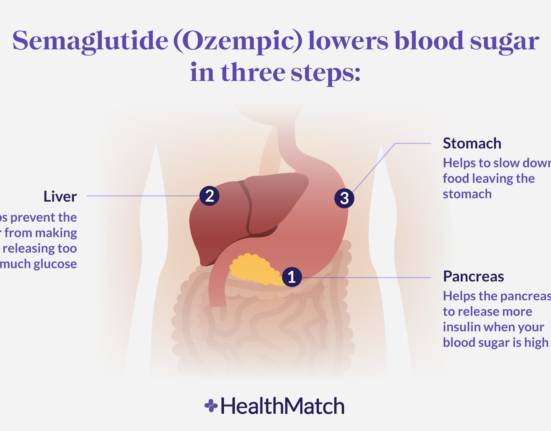There are many different ways to treat erectile dysfunction (ED), but not all of them are safe for heart patients. Heart patients have a higher risk of developing erectile dysfunction (ED) than the general population. This is because many of the medications used to treat heart conditions can affect blood flow, which can lead to ED.
There are several treatment options available for heart patients who develop ED. These include:
- Phosphodiesterase inhibitors
- Penile injections
- Vacuum erection device
- Surgery
Your health care advisor will start with the least invasive option and move up to more invasive options, if necessary. Treatment for ED may not be necessary for all heart patients, as some may be able to manage their condition with lifestyle changes or other methods.
If you have heart disease and are experiencing ED, talk to your doctor about the best treatment option for you.
1 Phosphodiesterase inhibitors
Phosphodiesterase inhibitors are the first line of treatment for ED. These medications include Sildenafil Citrate (Viagra as well as cost-effective version Kamagra), Tadalafil (Cialis and Apcalis Jelly), and Vardenafil (Levitra). They work by relaxing the muscles in the penis, which allows for increased blood flow and an erection.
All these medications relax the penile arteries and ease the flow of blood to the male reproductive part for a strong and long-enduring erection. The onset and the effective period of all these medications vary. While Sildenafil loaded medications show results within half an hour after use, the onset of other medications may take about 45 minutes to one hour.
Sildenafil loaded medications such as Viagra, Kamagra, Eriacta, Silagra, Hard on and Aurogra keeps men firm and effective for close to 4 hours, whereas medicines containing Vardenafil such as Levitra stays vibrant in the body of the males for nearly 10 hours.
For weekend fun and romance, Tadalafil loaded medicines such as Cialis and Apcalis oral jelly should be preferred. Both these medicines stay vibrant in the male’s system for close to 36 hours and offer ample time and opportunity for males to enjoy orgasmic sessions. Men have enjoyed multiple lovemaking positions with their correct use.
One Important thing which men must remember is that all these medicines must be taken under the strict supervision of a senior physician. Besides heart problems, if men are suffering from any other medical ailments, then they must share their medical reports as well as the list of used prescription medicines with a senior health care advisor prior to their use. All these medications require the male to be sexually aroused else they will not show the result. Remember, these medicines are not aphrodisiacs.
However, the use of oral ED drugs may lead to certain side effects such as:
- Back Pain
- Headache
- Facial Flushing
- Upset Stomach
- Congestion
2 Penile injections
Penile injections are another option for treating ED. These injections go into the side of the penis and can cause an erection in about 5-20 minutes. The erection will last for 30-60 minutes. Penile injections are effective for most men, but they may cause pain at the injection site.
There are mainly 3 types of penile injections such as:
- Papaverine
- Phentolamine and
- prostaglandin
A combination of all these medications is also used at times for the treatment of penile injections. These injections boost the flow of blood to the male reproductive part and enable men to stay strong in bed.
Penile injections are considered an effective and second-line therapy for the treatment of erectile dysfunction. These therapies are only recommended when the first line of treatment such as ED medicines has not proven effective. As per a recent survey, around 105 men who relied on penile injection therapy for more than a decade were satisfied with the results.
There is a slight risk of bleeding or bruising in the case of penile injections. Hence, it is advisable to follow the advice of your health care professional to avoid any form of severe effects.
Some patients have experienced mild pain after injections. Correct placement of the needle can assist in swelling and irritation. In certain cases, priapism or a prolonged and painful erection can occur. Such patients must be immediately rushed to a health care advisor. Get in touch with a physician if you experience pain or bleeding after the use of injection.
3 Vacuum erection devices
Newsflash Nigeria gathered that vacuum erection devices are the most effective non-surgical treatment option available for heart patients with ED. These devices are simple to use and work by creating a vacuum around the penis, which allows blood to flow into the tissue and creates an erection. Surgery is only recommended in cases where other treatments have failed and are not considered to be a first-line treatment option.
Vacuum erection devices are also called vacuum constriction devices or penis pumps. A VED consists of a plastic tube; a mechanical battery operated electric pump and a constriction band, which is fitted to one side of the tube.
While the pump is used to create a vacuum, the tube is placed over the male organ which boosts the flow of blood to the male organ so that it becomes hard and rigid. To maintain erection, the band is placed at the base of the male genitalia.
4 Surgery
Surgery is the most invasive option and is typically only considered a last resort. The other options are much less invasive and can be very effective. The main objective behind the surgery is to bypass blocked arteries that lead to erectile problems. Vascular reconstructive surgery fills the chambers of the male organ with sufficient amounts of blood and assists a male to attain and sustain an erection for lovemaking. The surgery transfers an artery from the belly to the male genitalia which clears the path for the circulation of blood to the male reproductive part. It may be a good option for younger males who may have ED due to an injury around the male organ. Just have a detailed discussion with your health care advisor to see if this surgery suits you. Since it is a costly procedure, it is not recommended by major urological associations.








142 Comments